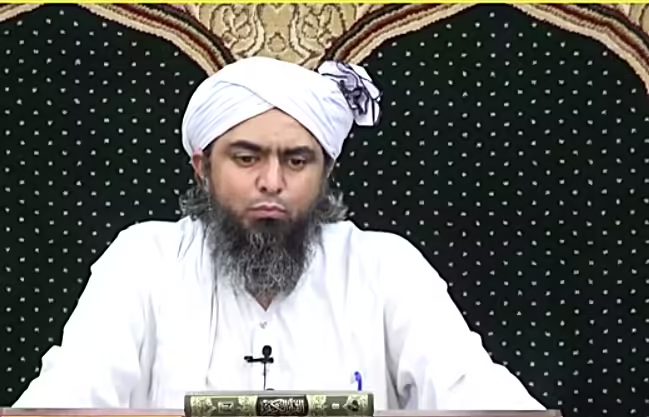Council of Islamic Ideology (CII) has found Engineer Muhammad Ali Mirza guilty of blasphemy
In a move that has sparked widespread controversy throughout Pakistan, the Council of Islamic Ideology (CII) has found **Engineer Muhammad Ali Mirza guilty of blasphemy. The Council, headed by Allama Dr. Muhammad Raghib Hussain Naeemi, made the decision after carefully examining the Federal Investigation Agency’s (FIA) Cyber Crime Wing’s reference and the FIR already filed against the scholar based in Jhelum.
The Council declared that Mirza’s words had been spoken “without any religious aim” and were thus outside the category of intentional blasphemy. In accordance with the decision, his insistence on using provocative statements and interpretations “warrant serious punishment.”
The Meeting That Sealed the Decision
The decision was made after a lengthy meeting held with senior members present such as Justice (retd) Zafar Iqbal Chaudhry, Dr. Abdul Ghafoor Rashid, Pir Khalid Sultan Qadri, Hafiz Tahir Mahmood Ashrafi, Barrister Syed Atiq-ur-Rehman Shah Bukhari, and many others.
The scholars collectively decreed that Mirza’s controversial statements not only defied the sanctity of the Holy Prophet (peace be upon him) but were also tantamount to “spiritual distortion” and “insulting the Quran.”
Background: Detention and Arrest of Engineer Mirza
This decision comes after Mirza’s previous detention by the Jhelum Police on August 26 under Section 3 of the Maintenance of Public Order (MPO) Ordinance. His arrest followed a video statement that angered the public, prompting authorities to seal his academy.
With over 3.1 million YouTube subscribers, Engineer Muhammad Ali Mirza has long been famous for his brash, sometimes blunt interpretations of Islamic scripture. Fans consider him a reformist voice pushing against clerical orthodoxy, while critics claim he is misrepresenting and leading people astray.
Council’s Reasoning Behind the Ruling
The CII noted that it is only allowed to quote words of disbelief in certain situations like testimony, refutation in academic work, or in cases of required warning. Mirza, in the view of the Council, quoted blasphemous phrases without serving any such legitimate religious intent, rendering his actions illegal and exceedingly sinful.
They went on to declare that his comments not only offended holy scriptures but also threatened “spreading mischief on earth.” To lend more credibility to their ruling, the Council even declared plans to ask Pakistan’s Christian masses if the reported comments have any mention in their holy scriptures.
Other Important Rulings by the Council
In conjunction with the blasphemy ruling, the Council of Islamic Ideology touched upon some other urgent issues:
- Withholding Tax Declared Un-Islamic: The CII opposed the government’s decision to raise withholding tax on cash withdrawals, terming it contrary to Sharia principles.
- Diyat Law Amendments Opposed: The Council opposed the deletion of silver and changing the blood money standards, demanding that traditional Sharia values be kept intact.
- Insulin Containing Pork Ingredients: The Council decreed such insulin should be avoided if halal alternatives are available.
- Respect for Sacred Scriptures: The Council emphasized prompt cleaning of Quran prints used in testimonies if tainted.
- Human Milk Banks: Sanctioned under stringent legislation to prevent abuse.
- Supreme Court Criticism: The Council was against an order requiring maintenance for a non-makkad lady after divorce, terming it against Quran and Sunnah.
A Nation at Crossroads
The ruling against Engineer Muhammad Ali Mirza has not merely widened divisions within scholars but also touched upon **freedom of expression versus religious sanctity. For his followers, the Council’s decision is a strict effort to muzzle reformist voices, whereas for detractors, it is an overdue measure against accountability.
What is certain is that the case will most likely shape Pakistan’s religious, social, and even political sphere over the coming years.
Stay tuned to Pakistan Updates for more news and updates.




